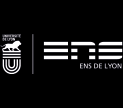Aitia, n°13.1/2023
Chercher la petite bête
Representing animals in ancient literature This issue brings together the papers of a workshop focusing on the theme of man and animal: human beings speak about themselves through the animal, and make the animal in their image and, sometimes take its appearance. The exploration of the resemblance between human beings and animals constitutes, because it allows us to question human nature.
Mots. Les langages du politique, n°132/2023
Les mots du vote de la Rome antique à la Révolution française
Words describing voting, from Ancient Rome to the French Revolution The Romans had a rich vocabulary in Latin to describe the voting process. This issue examines how this vocabulary came to take on different meanings, depending on the historical and political contexts in which it was used, in the ancient period as well as in the Middle Ages, the Renaissance and the Classical Age.
Le spéculum, la canule et le miroir
Speculum, cannula and mirror Avorter au MLAC, une histoire entre féminisme et médecine
Abortion at MLAC, a story of feminism and medicine Perspectives genre
This book proposes a sociohistory of the social control of women's bodies from the perspective of the mobilizations for free abortion from 1972 to 1984 in France. It examines the medicalization of a procedure through the exclusion of lay women and at the same time the feminist appropriation of abortion knowledge.
Penser l'humain et la technique
Simondon et Derrida après la métaphysique
La croisée des chemins
Laboratoire italien. politique et société, n°30/2023
Mussolini in Arte / Arte in Mussolini Perspectives italiennes et internationales
Mussolini in Arte / Arte in Mussolin iItalian and International Perspectives In the wake of the recent publications on the centrality of culture in the Fascist totalitarian project, this issue examines Mussolini's relationship to the arts and vice versa more specifically, probing the aesthetic and political aspects of representations of the "duce" – both in Italy and in their circulation abroad.
Repères, n°67/2023-1
Quelles mutations dans le champ de la didactique du français, à l'école primaire ?
What changes are taking place in the teaching of the French language in primary schools? This dossier examines how the teaching of French deals with the question of changes in education. Work in this area which observes and analyses these changes lies at the center of this discussion, which is as much about learning and teaching issues as those of training.
Tracés, hors-série 2022
L'interdisciplinarité « en effet » : sciences sociales, sciences naturelles
Interdisciplinarity "in effect": Social sciences, natural sciences This special issue of the journal Tracés focuses on interdisciplinary practices across the social sciences and natural sciences. we sought to reflect on ways of practising interdisciplinarity across disciplines whose research objects, methods, epistemologies and theoretical references seem to differ significantly
RDST, n°27/2023
L'évaluation et l'enseignement des sciences et des technologies
Assessment and teaching of science and technologies The question of evaluation is particularly present and lively in educational systems. Yet, paradoxically, it does not appear to be a subject of primary importance in science and technology education research. This issue of RDST attempts to take stock of what this research has to say on this subject.
RDST, n°27/2023
L'évaluation et l'enseignement des sciences et des technologies
Assessment and teaching of science and technologies The question of evaluation is particularly present and lively in educational systems. Yet, paradoxically, it does not appear to be a subject of primary importance in science and technology education research. This issue of RDST attempts to take stock of what this research has to say on this subject.
Recherche et formation, n°97/2021
Comment et pourquoi l'éducation à l'esprit d'entreprendre questionne l'évolution du système éducatif français ?
How and why entrepreneurship education questions the evolution of the French education system The issue questions the forms and challenges of the development of entrepreneurship education and the transformations that its implementation implies for the education system and its actors (discourses, skills, activities, professionalism).
|
Catalog
- Philosophy
- Literature
- Linguistics
- Sciences
- History, Geography, Sociology
- History of books
- History of Science
- Education
- Arts
- Economics
- Political Science
- Sources

